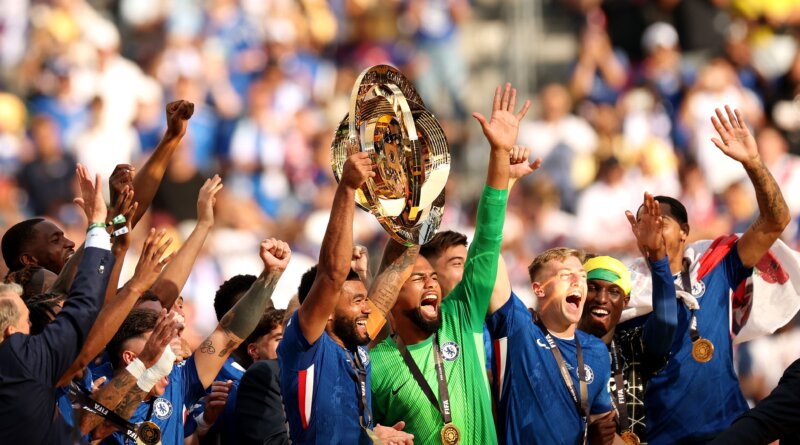FIFA Club World Cup Draws Mixed Reactions After US Debut
FIFA Club World Cup 2025 took center stage in North America, concluding with Chelsea’s commanding 3-0 victory over Paris Saint-Germain at MetLife Stadium. The tournament’s expansion to a 32-team format marked a significant shift for world football, but while MLS Commissioner Don Garber lauded the event as an “incredible success,” not everyone was convinced by the optimism.
FIFA Club World Cup 2025 Makes North American Debut
FIFA Club World Cup 2025, the first edition held in the United States, brought together champions from every continent for a month-long football spectacle. According to Don Garber, it was “a proud moment for everyone involved in soccer across North America,” emphasizing how the event showcased the region’s growing impact on the global game. Garber highlighted FIFA President Gianni Infantino’s vision and declared, “A lot of the future growth in global soccer is happening right here in the United States and across North America. The Club World Cup showcased that.”
Mixed Assessment from Pundits and Players
Despite Garber’s enthusiastic remarks, former Premier League goalkeeper and ESPN pundit Shaka Hislop offered a more measured perspective. On the Futbol Americas podcast, Hislop acknowledged that the tournament had exceeded his modest expectations, but questioned whether it warranted the label of “incredible success.” He emphasized the uncertainty facing European clubs, particularly regarding player fatigue and preparation for their domestic leagues.
“It’s been more successful than I was expecting, I’ll hold my hands up and admit to that,” Hislop stated. “But whether I’ll go as far as to say it’s been an ‘incredible success’? I’m not entirely sold on that… Let’s say PSG have an injury crisis in six months’ time—how will they reflect on this summer? There’s a lot of unknowns that we’re still trying to work through for the European clubs.”
Hislop also pointed out practical challenges, noting that while many European teams had already started preseason, Chelsea and PSG just wrapped up a grueling campaign. “Do you rest? Do you keep things ticking over?” he pondered. The uncertainty surrounding recovery and readiness for the upcoming season was a major concern.
Critiques of the American Experience
Adding to the debate, former USMNT player Herculez Gomez recognized the tournament’s global appeal, but was critical of what he called the “North American things.” Gomez pointed to issues like temporary grass surfaces over artificial turf, weather delays, extreme heat, and inconvenient kickoff times as detracting from the experience for fans and players alike.
“What people hate about this tournament are the North American things—the grass over field turf, the rain delays with thunderstorms, the heat, the time,” said Gomez. “The CWC is a fantastic idea, football for all… That’s part of it as well. What they don’t like are the American things that come with it. So it’s a ‘Get Lost’ to Don Garber because as Americans, the world doesn’t revolve around us. Football doesn’t revolve around us.”
FIFA Club World Cup at a Crossroads
FIFA Club World Cup 2025 was more than just a football tournament—it was a test of North America’s readiness for the global football spotlight. With the expanded format, more teams from around the world had a chance to compete on an elite stage, and fans enjoyed matches between clubs that rarely face each other. Yet, the event also highlighted logistical challenges and cultural clashes, particularly regarding the American approach to hosting global sporting events.
As Shaka Hislop and Herculez Gomez highlighted, the success of FIFA Club World Cup 2025 may ultimately be measured in the coming months. Will European clubs struggle with player fatigue? Could the experience in North America shape how future tournaments are organized?
Looking Ahead: Road to the 2026 World Cup
With the 2026 FIFA World Cup on the horizon, also set in the United States, Mexico, and Canada, the region’s football infrastructure and hosting capabilities are once again under the microscope. Lessons learned from the Club World Cup will likely influence preparations for an even bigger stage, involving 48 national teams and millions of fans worldwide.
Opinion: A Promising Start, but Room for Growth
FIFA Club World Cup 2025 has undoubtedly advanced the profile of international club football in the United States. The passion in stadiums, the spectacle of top clubs clashing, and the chance for lesser-known teams to challenge giants are all positives. However, as highlighted by Hislop and Gomez, the American way of organizing football tournaments still has kinks to iron out—both in terms of player welfare and fan experience.
Overall, while the tournament succeeded on many fronts, labeling it an “incredible success” seems premature. The real legacy of FIFA Club World Cup 2025 will be determined by how well its lessons are applied to future events, ensuring the growth of the game is matched by the quality of its biggest stages.
Your global gateway to nonstop football coverage:
News Goal
Share this content:

